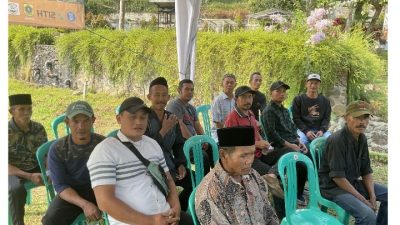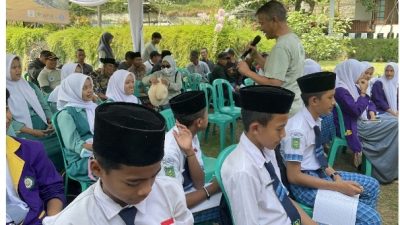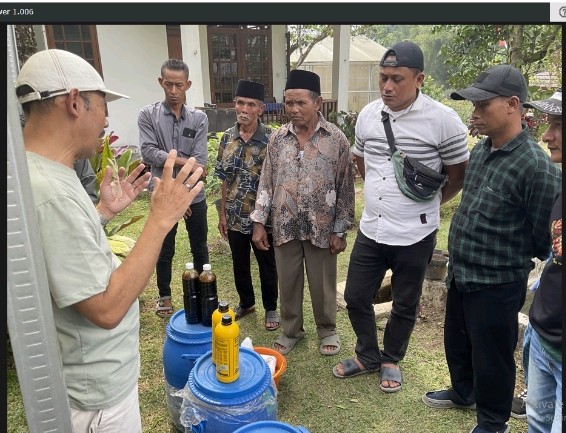

Dozens of farmers and students learned how to convert agricultural waste into organic fertilizer in a training organized by lecturers and students of ITB at Batuah Farming Pancawati (BFP), Pancawati Village, Caringin Subdistrict, Bogor Regency, on Saturday, August 31, 2024.
This community service program was led by Dr. Eri Mustari, Ir., M.P., from ITB’s Plant Science and Biotechnology Research Group (SITH), along with Dr. Dadang Sumardi, Ir., M.P., and Yeyet Setiawati, Ir., M.P., who are also lecturers in related fields. Participating students from the Agricultural Engineering and Biological Engineering study programs included Helga Evangelina, Aurelia Villi Christy, Muhammad Harditia Taufik, Faqih Maulana Ardi, and Hasna Mazidah.
Dr. Eri Mustari explained that the training aimed to introduce the concept of zero waste and sustainability in the production of organic fertilizers, while also improving farmers’ skills in processing agricultural waste into both liquid and solid organic fertilizers. Additionally, participants were taught about production management and marketing of organic fertilizers.
He stated that waste is the by-product of daily human activities and natural processes, which can be solid or liquid, such as agricultural waste. Waste management must be systematic and sustainable, encompassing government policy, waste management technology, cross-sector collaboration, financial support, and changes in mindset and public awareness.
The training included materials on using agricultural waste for making liquid organic fertilizer by Dr. Eri Mustari, solid organic fertilizer by Dr. Dadang Sumardi, and environmentally friendly vegetable cultivation techniques by Yeyet Setiawati.
The training was attended by more than 65 participants, including lecturers from ITB’s Plant Science and Biotechnology Research Group, representatives from the Pancawati Village BLPP, the village secretary, and several farmer groups and students from various schools around Pancawati Village.
Captain Suardi Panai, the owner of BFP, explained that the 18,500 m² farm has been operational since 2010, focusing on cultivating crops like chili peppers, corn, cucumbers, and others, as well as fish farming and compost production from water hyacinth.
In 2022, ITB supported the farm with agricultural facilities, introducing soilless farming, integrated farming, and organic farming systems. He expressed his gratitude to the ITB lecturers for utilizing BFP as a learning center for producing both liquid and solid organic fertilizers, as well as demonstrating environmentally friendly farming practices.
Related News:
indonesiadaily.net: Belajar dari Dosen ITB, Petani dan Siswa Pelajari Pembuatan Pupuk dari Sampah Pertanian


